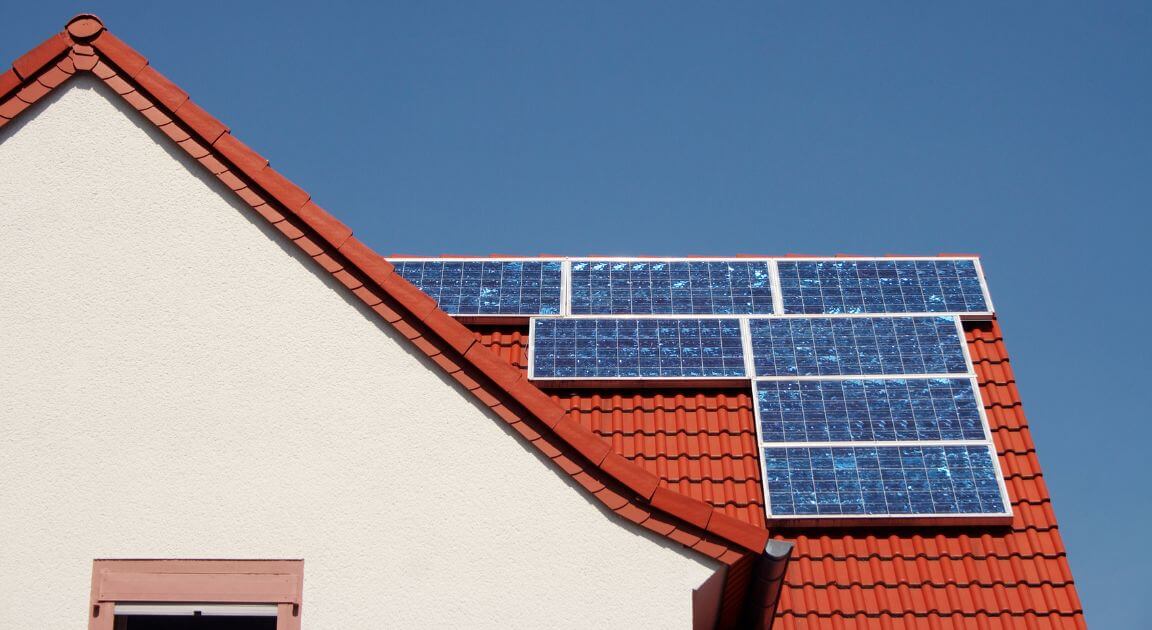2023 Expanded Eligibility + Individual Residential Energy Credits

The federal government offers two energy credits designed to help individuals offset residential energy costs.
- The Nonbusiness Energy Property Credit (IRC Section 25C)
- Residential Energy Efficient Property Credit (IRC Section 25D)
The Inflation Reduction Act, passed this year, renamed and modified both. More individuals can now take advantage of the expanded credits starting in 2023.
Nonbusiness Energy Property Credit / Energy Efficient Home Improvement Credit (25C)
The nonbusiness energy property credit is intended for homeowners who install energy-efficient improvements. The credit has historically had a $500 lifetime limit and is equal to 10% of the amount paid by the taxpayer. Qualified energy efficiency improvements include home insulation, exterior doors, exterior windows and skylights, certain roofing materials, and residential energy property expenditures like electric heat pumps, electric heat pump water heaters, central air conditioning systems, natural gas/propane/oil water heaters, biomass fuel stoves, natural gas/propane/oil furnaces and hot water boilers, and advanced circulating fans.
Effective 1/1/2023 to 12/31/2032, the $500 lifetime limitation has been abolished, and now a $1,200 limit per taxpayer per year applies. Furthermore, the credit limit increases from 10% to 30%. Certain improvements have separate limitations:
- $600 for residential energy property expenditures, windows, and skylights
- $250 per exterior door ($500 total for all exterior doors)
- $150 for a home energy audit.
Residential Energy Efficient Property Credit / Residential Clean Energy Credit (25D)
The residential energy efficient property credit (IRC Section 25D) incentivizes individual taxpayers to purchase alternative energy products that rely on renewable energy sources, such as wind, solar, geothermal, or fuel cell technology. The cost of wind turbines, solar panels, solar electric equipment, solar-power water heaters, etc., is eligible for the credit, whether they are installed in a primary residence or vacation home.
Specifically, you can use the credit on the following expenditures:
- Qualified solar electric property expenses
- Qualified solar water heating property expenses
- Qualified fuel cell property expenses
- Qualified small wind energy property expenses
- Qualified geothermal heat pump property expenses
- Qualified battery storage technology
The rate to calculate qualifying expenses has increased from 22% to 30% for 1/1/2022 to 12/31/2032. If you have any questions, please contact us or your Lutz representative.

- Input, Learner, Intellect, Context, Achiever
Daniel Sweeney
Dan Sweeney, Tax Director, began his career in 2016. With both a JD and Tax LLM degree, he has built comprehensive expertise while leading the firm's specialty tax offering.
Leveraging his extensive technical knowledge, Dan specializes in nonprofit, estate, and international tax matters. He excels at translating intricate tax rules into practical applications, ensuring compliance across various sectors. His consultative approach, attention to detail, and ability to find actionable solutions help clients confidently navigate complex regulations.
At Lutz, Dan's passion for learning and thorough research skills have made him a go-to expert in the firm. His intellectual approach to problem solving and deep understanding of tax law continues to elevate the firm's tax practice.
Dan lives in Omaha, NE, with his wife Jillian and son Mark. Outside the office, he can be found reading up on ancient history and taking walks in nature with his wife.
Recent News & Insights
Chargemaster Reminders & Common Issues
Transition Planning for Retiring Physicians
Recent Volatility and Why We Diversify + 3.12.25
In-House vs Outsourced Controller for Medical Practices




%20(1)-Mar-08-2024-09-22-41-1011-PM.jpg?width=300&height=175&name=Untitled%20design%20(5)%20(1)-Mar-08-2024-09-22-41-1011-PM.jpg)
%20(1)-Mar-08-2024-09-27-14-7268-PM.jpg?width=300&height=175&name=Untitled%20design%20(6)%20(1)-Mar-08-2024-09-27-14-7268-PM.jpg)

%20(1)-Mar-08-2024-09-11-30-0067-PM.jpg?width=300&height=175&name=Untitled%20design%20(3)%20(1)-Mar-08-2024-09-11-30-0067-PM.jpg)
%20(1)-Mar-08-2024-09-18-53-4361-PM.jpg?width=300&height=175&name=Untitled%20design%20(4)%20(1)-Mar-08-2024-09-18-53-4361-PM.jpg)
-Mar-08-2024-09-03-21-1119-PM.jpg?width=300&height=175&name=Untitled%20design%20(1)-Mar-08-2024-09-03-21-1119-PM.jpg)
-2.png?width=264&height=160&name=Website%20Featured%20Content%20Images%20(1)-2.png)
-Mar-08-2024-08-50-35-9527-PM.png?width=300&height=175&name=Untitled%20design%20(1)-Mar-08-2024-08-50-35-9527-PM.png)


.jpg)




